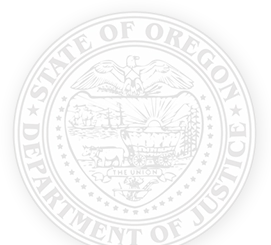AG Rayfield: “Working families are facing an affordability crisis across our nation, and the president has abused an emergency power.”
Oregon led a multistate case before the Supreme Court of the United States (SCOTUS) today challenging the federal government’s use of emergency powers to impose sweeping tariffs, which are driving up the cost of everyday goods for working people across the country. The case tests whether the President exceeded his authority under the International Emergency Economic Powers Act (IEEPA).
“Sitting in that courtroom today, you could really feel what’s at stake for working families,” said Attorney General Rayfield. “Between this administration’s bad trade deals, these tariffs and their continued efforts to cut health care and SNAP benefits for Americans, they’re reshaping the American economy into one that simply doesn’t work for working people.
“Oregon families are already stretching every dollar as they get ready for Thanksgiving. Everyone has had that moment lately – you walk into the grocery store, grab the same cart of groceries you always do, and somehow the bill is twenty bucks higher. The president’s attorney himself admitted that the American people – not foreign countries – are going to pay 30-80% of these tariffs. Working families are facing an affordability crisis across our nation, and the president has abused an emergency power. That’s why we’re fighting.”
The case challenges the President’s use of IEEPA to impose broad tariffs on imports, arguing that statute does not delegate Congress’s tariff powers under Article I of the U.S. Constitution.
Background
On April 23, 2025, Oregon led a coalition of twelve states—Arizona, Colorado, Connecticut, Delaware, Illinois, Maine, Minnesota, Nevada, New Mexico, New York and Vermont—in filing suit in the U.S. Court of International Trade.
- The tariffs at issue included sweeping “reciprocal” tariffs on nearly all imports, as well as targeted tariffs affecting Canada, Mexico, and China, among others.
- In May 2025, the United States Court of International Trade ruled in favor of the states, finding the tariffs exceeded the President’s authority under IEEPA.
- The federal government appealed against that ruling. On August 29, 2025, the United States Court of Appeals for the Federal Circuit affirmed that ruling—finding the President’s tariff orders went beyond the statutory grant of authority and were therefore unlawful.
- The Supreme Court agreed to expedited review of the Federal Circuit decision.
The Supreme Court’s ruling will determine whether the President can unilaterally impose tariffs under emergency powers and what limits the Constitution places on executive trade authority.
Oregon’s economy is already feeling the pinch from the tariffs. Local farms that depend on exports – like hazelnuts and potatoes – face rising costs and shrinking markets, while manufacturers and retailers are paying more for imported goods. Economists warn these policies could cost Oregon businesses more than one billion dollars if they stay in place.
Attorney General Rayfield commends Oregon Department of Justice Solicitor General Benajamin Gutman for arguing on behalf of Oregon and the multi-state coalition at SCOTUS and for all his work on this landmark case.
